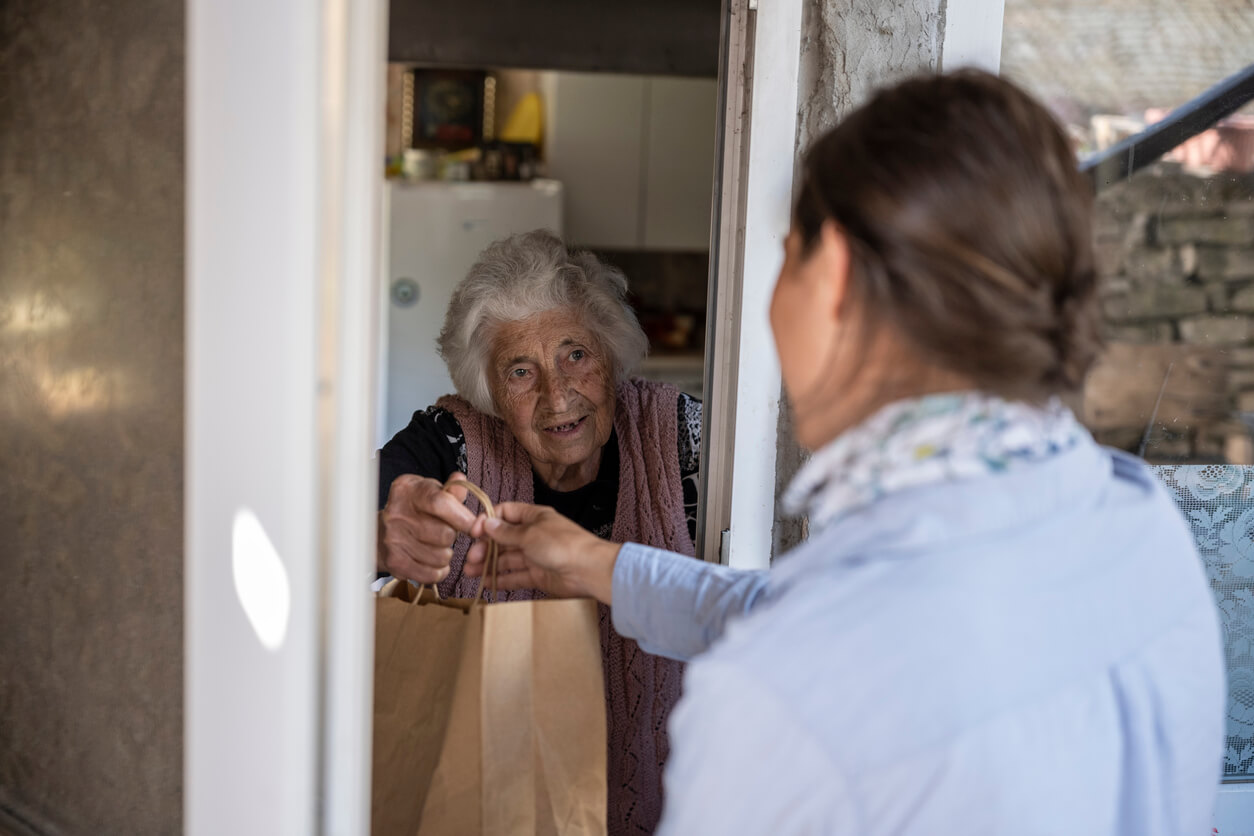
NANASP on Nutrition, Medicare Advantage, and Advocacy for Older Americans
Nearly 7 million Americans aged 60 and older face food insecurity, according to Feeding America. Since its founding in 1977, the National Association of Nutrition and Aging Services Programs (NANASP) — a Better Medicare Alliance ally — has championed efforts to connect older adults with nutritious meals and community support.

Led by longtime advocate Bob Blancato, NANASP advances senior nutrition and essential services through community-based programs. We spoke with Blancato about how Medicare Advantage can support seniors’ nutritional needs and how advocacy efforts are shaping the future of aging services.
Better Medicare Alliance (BMA): How does nutrition support help connect seniors with the community and their broader health needs?
Bob Blancato: Nutrition is at the center, but it all links together. When we connect seniors with community support, we’re also checking in on their wellbeing, identifying other needs like transportation, caregiving, or social isolation. Nutrition programs often serve as entry points to a wider network of services that promote overall health. It’s all connected.
BMA: How does Medicare Advantage help seniors access nutrition services?
Blancato: Medicare Advantage plans can be powerful tools in addressing food insecurity. Many offer supplemental benefits that include meal delivery, grocery assistance, and nutrition counseling. These benefits can be coordinated with other services like transportation and caregiving, creating a more complete support system for older adults. At NANASP, we advocate for these benefits to be as visible and accessible as possible.
BMA: How do beneficiaries understand where their meals come from and how they are paid for?
Blancato: Unfortunately, many older adults don’t know the source of their meals or the funding behind them. With federal funding changes, this lack of awareness is becoming a real issue. But it’s also sparking advocacy — more people are contacting their representatives and getting involved. This engagement is helping build a stronger, more informed community that understands the value of these programs and is willing to fight for them.
BMA: What are NANASP’s advocacy goals around the Older Americans Act (OAA), and why is its renewal so important?
Blancato: The Older Americans Act is the backbone of many nutrition and aging services. We’re advocating for a robust reauthorization that reflects the growing needs of our aging population. This includes increased funding for nutrition programs, better support for caregivers, and expanded access to services. Renewing the OAA is a commitment to dignity and health for older Americans.
BMA: Why is it important to protect Medicare Advantage and the nutrition benefits seniors receive through the program?
Blancato: Medicare Advantage is an essential source of support for many older adults, including those facing food insecurity. The nutrition benefits, like meal delivery and grocery stipends, are critical interventions. Protecting and expanding these benefits ensures that seniors can age with health and independence. We must safeguard these programs from cuts and ensure they continue to evolve to meet real needs.
BMA: There’s a lot of policy discussion right now around the importance of preventative health and nutrition. How is NANASP’s work aligned with these goals?
Blancato: These conversations, like the Make America Healthy Again initiative, emphasize prevention and wellness, all of which are supported by nutrition programs. Ensuring older adults have access to healthy meals reduces hospitalizations, improves chronic disease management, and enhances quality of life. Nutrition is foundational to health, and aligning our programs with this initiative builds support for NANASP’s longstanding goals.
BMA: What’s next for NANASP?
We have several current focuses. We are working for increased funding for the Older Americans Act. Nutrition programs. NANASP and Meals on Wheels America are pushing for $1.6 billion in FY 26 funding for nutrition programs. We also seek reauthorization of the Older Americans Act, preferably for four years, with funding increases in each year. We are working to reverse the recent recommendation from Advisory Committee on Immunization Practices that imposes shared decision making for those 65 and over to get the COVID-19 vaccine. Finally, we will work with other national aging organizations to stop the Department of Agriculture from ending its annual report measuring food insecurity.
